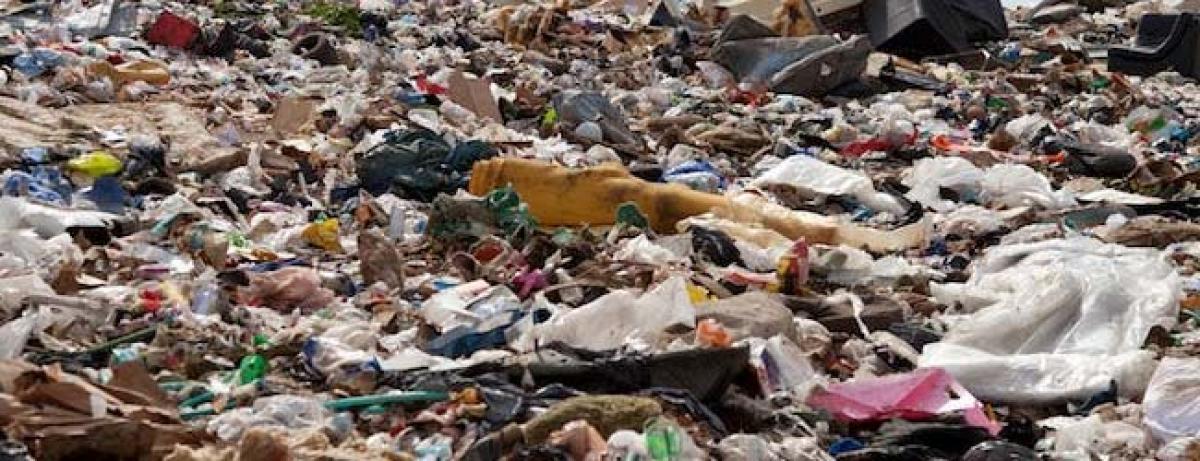Live
- ‘Garuda Prasadam’ at Chilkur Balaji throws traffic haywire on Moinabad Road
- GHMC approves 11,000 building permissions
- Members of Legislative Council Join YSR Congress Party in Massive Election Campaign in Buchireddypalem Mandal
- YV Ramireddy Criticizes MLA Sridhar Reddy for His Comments on Adala Prabhakar Reddy
- Visakhapatnam: Amid special prayers and bike rallies, candidates file nominations
- AIMIM works for its own welfare, neglects Old City denizens
- Palle Sindhura Reddy flays YS Jagan during election campaign in Puttaparthi
- Senior JSP leader Manukranth Reddy quits party, joins YSRCP
- Asad files nomination papers for Hyd’bad Lok Sabha seat
- GHMC implements weekly ‘basti’ action plan
Just In
Thai innovations answer to India's insurmountable sanitation crisis?


As India grapples with an immense and seemingly insurmountable sanitation crisis, a Thailand-based international institute could show the way on tackling this challenge.
Bangkok: As India grapples with an immense and seemingly insurmountable sanitation crisis, a Thailand-based international institute could show the way on tackling this challenge.
The Asian Institute of Technology (AIT) has unveiled four sanitation and toilet-related innovations as an example on how technology is emerging as a solution to sanitation problems.
"The biggest challenge is untreated waste, and we have successfully demonstrated how technology can be used to help solve this problem," said Thammarat Koottatep, an environmental engineer who unveiled four sanitation innovations.
Among them is a truck that auto-cleans human waste.
"The concept is very simple. The vacuum operated truck collects all the human waste, and the equipment fitted inside the truck cleans the liquid and solid waste, converting it into fertilizer," Thammarat said.
Another example of innovative technology is a toilet that uses solar energy to degrade bacteria and kill pathogens, facilitates bio-degradation of organic matter and produces better quality of septic tank effluents. A prototype of the solar toilet, which was demonstrated at New Delhi during the World Toilet Fair in 2015, is now ready for implementation after a series of pilot tests and field testing.
A third innovation is a toilet based on the principle of a cyclone where the human waste is separated into solid and liquid using the principles of gravity. The fourth product involves retro-fitting a septic tank to ensure proper treatment of human waste.
"We realized that technology can help solve this problem, and that is why after four years of research and courtesy of financial support from the Bill & Melinda Gates Foundation, we have created four innovative products," the engineer added.
Doulay Kone, a deputy director of Water, Sanitation and Hygiene (WASH) at the Bill & Melinda Gates Foundation, who helped support the project, stated that Thammarat and his team had been working on it since 2011.
"Now that the technology is ready, we are eagerly looking forward towards its implementation in both Asia and Africa," Kone said.
Kone knows the region very well, and at the Fecal Sludgement Management Conference in Vietnam last year, he had led a team of experts and professionals from all over the world to salute the Swachh Bharat (Clean India) campaign.
"One in three people or 2.4 billion people in this world are still without adequate sanitation facilities," said AIT president Worsak Kanok-Nukulchai, adding: "These innovations show how universities and research organizations can come out of their ivory towers and work towards solving the problems of the people."
The World Bank estimates that inadequate sanitation costs India the equivalent of 6.4 percent of GDP. A staggering one-third of India's population defecates in the open.
By Bajinder Pal Singh
(the author is a freelance journalist based in Thailand. He can be contacted at bajinder@hotmail.com)

© 2024 Hyderabad Media House Limited/The Hans India. All rights reserved. Powered by hocalwire.com






